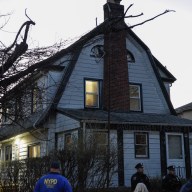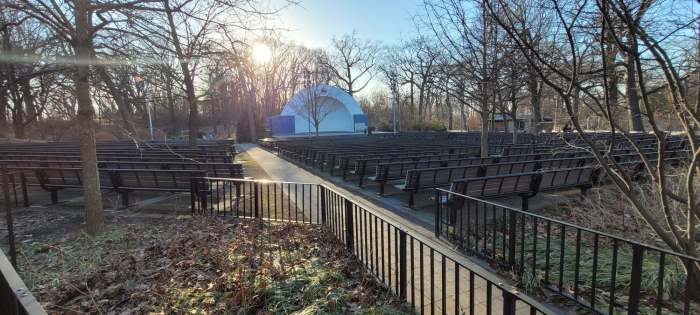By Stephen Stirling
“Are there any Turks among you?” Eminian asked, shaking as she sat down in the lobby of Flushing's Armenian Home for the Aged Saturday.Eminian was just 4 years old when she said members of the ruling Ottoman Empire came to her home and took her father with them. Days later, she said, two men returned to her home with a bag.”I answered the door. The men they asked me, 'Do you want to see your father?' I said, 'Yes, yes I do,' ” Eminian said, through a translator.She said the men took her father's bloodied clothes out of the bag and told her: “Here is your father.””They killed my father and they bring his jacket back,” Eminian said. “All blood. My father. They killed my father.”Eminian said she began to cry and one of the men struck her with the butt of his rifle, leaving a scar that remains today. She said her mother cried out and the men shot her several times, killing her, before taking Eminian's 2-month-old brother and throwing him against the wall, killing him.Eminian's story is not uncommon among the 200 to 300 survivors of the Armenian genocide who are alive today. Armenian historian Dennis Parpazian said that between 1915 and 1923 as many as 1.5 million Armenians were killed by Turks while another 500,000 were exiled.Eminian is one of eight survivors of the genocide who live at the Flushing Armenian Home for the Aged at 137-31 45th Ave.Charlotte Kechejian, 95, said she and her mother walked for miles through the desert in what was then the Ottoman Empire to escape persecution by the ruling Turks.”It's sad because my mother's other children never lived and I did,” Kechejian said. “Thank God I had my mother. If I didn't, how would I have the courage at such a young age?”While many of the world's national governments have issued resolutions recnogizing the genocide, leading nations like the United States and Britain have not, which Parpazian said has to do with strategic alliances those countries have with Turkey – which vehemently denies the genocide's existence.”Their opinion tends to be that we don't want to support [a resolution recognizing the genocide] because it's become political and we don't want to take sides,” Parpazian said. “But we try to draw attention to it because it keeps it in the news. As a result, many people in Turkey have become aware of the other side of the story.”The United States has several active military bases in Turkey, considered by the U.S. military to be key positions to hold in the volatile Middle East. Several of the Flushing survivors will make the trek to Times Square in Manhattan later this month, when they will officially commemorate the 93rd anniversary of the start of the Armenian Genocide. The ceremony is scheduled to take place on April 27 from 2 p.m. to 4 p.m. and typically draws hundreds of survivors, Armenians and sympathizers to the annual event.Reach reporter Stephen Stirling by e-mail at Sstirling@timesledger.com or by phone at 718-229-0300, Ext. 138.
































